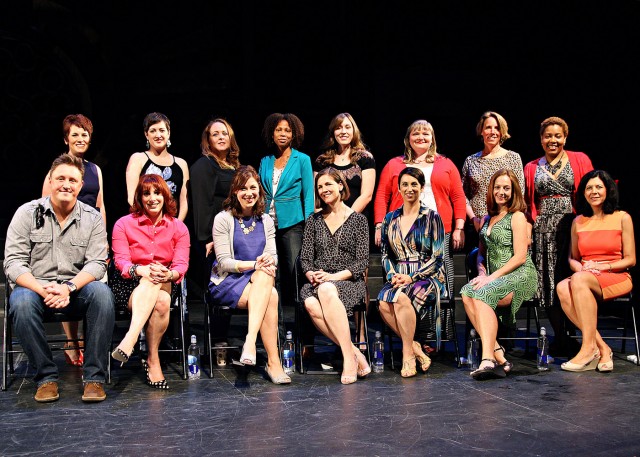Full disclosure: I went to Synetic Theater on Sunday afternoon firstly to see my friend Lauren perform and secondly because my mom said so. She likes stories about motherhood, and couldn’t be there herself. So mist and cold be damned.
Listen to Your Mother is a national program started by Ann Imig to “give Mother’s Day a voice” by inviting writers to read/perform selected personal essays about motherhood. The 2nd annual DC show took place Sunday at Synetic Theater.
Produced by Kate Coveny Hood and directed by Stephanie Stearns Dulli, LTYM DC included a wide variety of performers – 15 in total. As part of the Listen to Your Mother tradition, 10% of proceeds went to a local women’s or children’s organization. This year Rachael’s Women’s Center received the donation.
These weren’t “your momma’s stories” – well ok, unless your momma was on stage. I was happy to hear the occasional and well-placed curse words, the admittance of unhappiness at times, and some feminist ideals boldly lauded.
There were a number of standouts in the show: As the only male in the cast, author/daddy blogger Adrian Kulp garnered more than a little sympathy for his work as a stay-at-home dad, even if he refused the official “mommy” title.
Diane Cooper-Gould delighted and possibly horrified the crowd with her reading of “Little Monsters” – one of the better childbirth stories this childless writer has ever heard.
Director Stephanie Stearns Dulli gave a moving account of post-partum depression; while former Washington Post columnist Janice D’Arcy’s essay would/should feature beautifully in a literary journal.
Other standouts included Lauren Boston and Arnebya Herndon, who both infused the show with sharp humor and biting personal anecdotes.
Perhaps the key reading of the afternoon came from Amy O’Connell, who spoke on her own experience of losing a child and what it requires of someone after that, for life. Her insight stopped the room cold – a sudden and brutal reminder of loss that was perfectly placed within a spectra of motherhood stories. Only months after Sandy Hook and days after the Boston Marathon Bombings, and with countless mothers facing tragedy in relative silence, O’Connell’s work was as important as it was touching.
Many of the essays – even some of the best ones – could have used more editing. The show ran long, which in this author’s opinion reflected the further polish needed on certain stories. The show itself could also be curated down. 15 essays can feel like a lot, and the pieces weren’t all equal in quality.
Fortunately though, you don’t have to trust my word for it. You can watch all the performances yourself later this summer, as every Listen to Your Mother production is filmed and put online.
Watch it – oh, I don’t know – with your mother.


